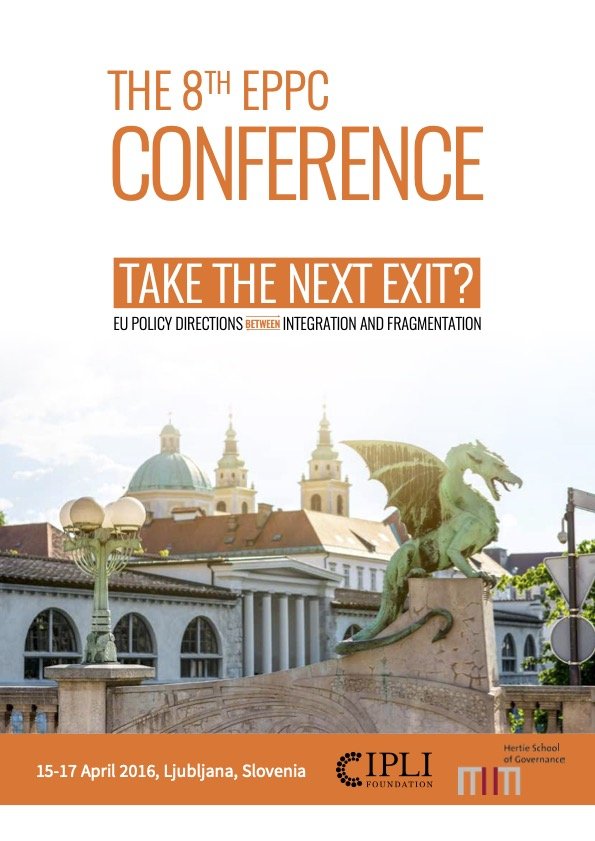Take the Next Exit? EU Policy Directions Between Integration and Fragmentation
EPPC 2016 | Ljubljana, Slovenia
The 2016 European Public Policy Conference focused on the challenges facing the European Union (EU) during a period of significant political and economic upheaval. It highlighted the urgency of rethinking EU governance and integration in the face of growing populism, extremism, and disillusionment among EU citizens. The discussions addressed key issues, including the migration crisis, Brexit, economic disparities within the Eurozone, and the social objectives outlined in the Europe 2020 strategy.
Speakers explored how the EU could adapt its constitutional framework, emphasizing the need for stronger institutions and leadership to manage shared challenges such as migration, foreign policy, and social exclusion. Critiques of the EU’s approach to economic and monetary union revealed structural flaws, particularly regarding fiscal coordination, current account imbalances, and the handling of sovereign debt crises in member states like Greece.
Proposals for reform included the introduction of an EU finance minister to oversee fiscal rules and crisis management, alongside recommendations for greater solidarity, institutional modernization, and more inclusive social policies. The conference underscored the necessity of international cooperation, urging the EU to prioritize unity and innovation to address its pressing internal and external challenges.


